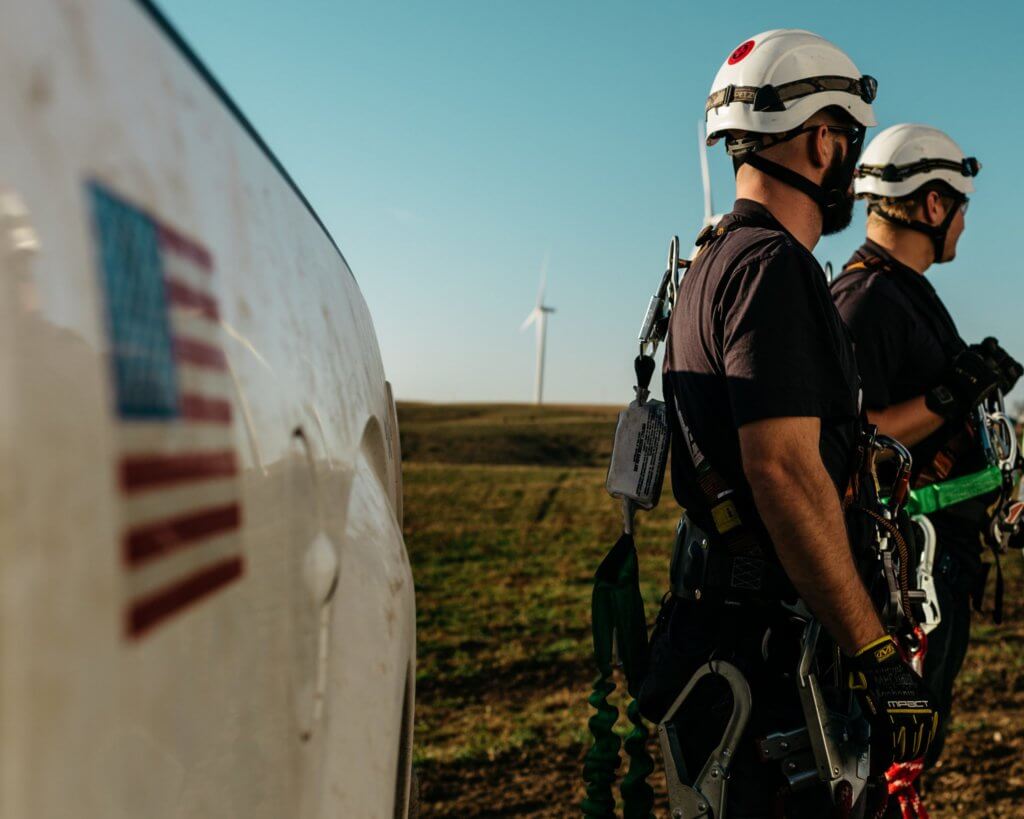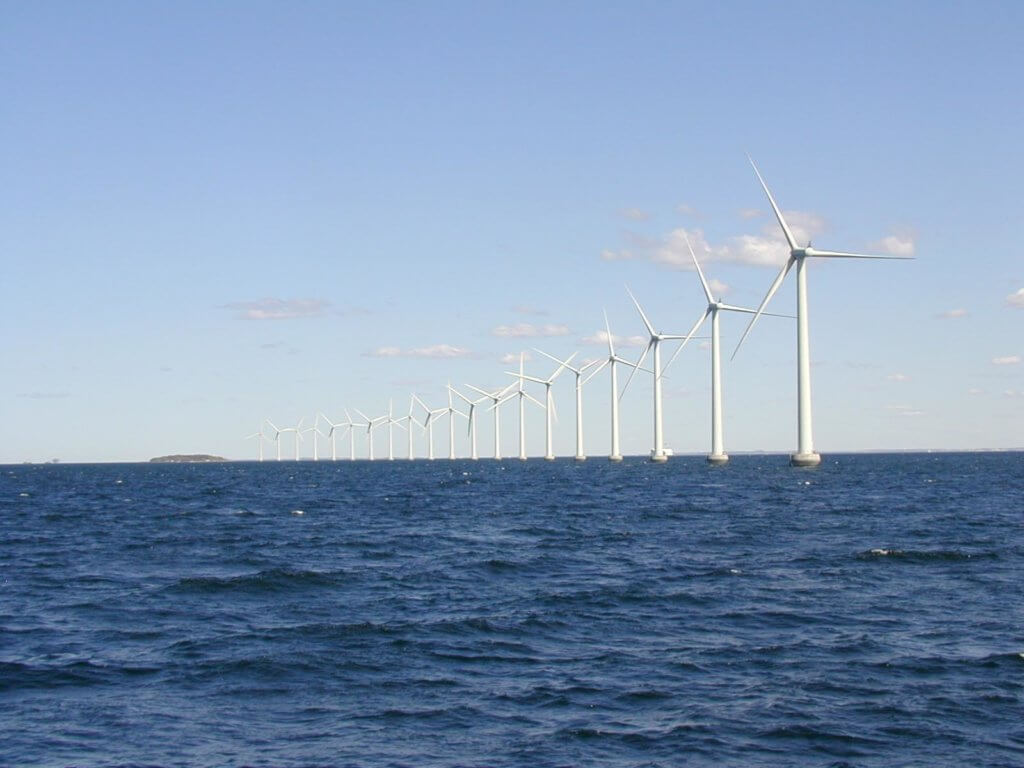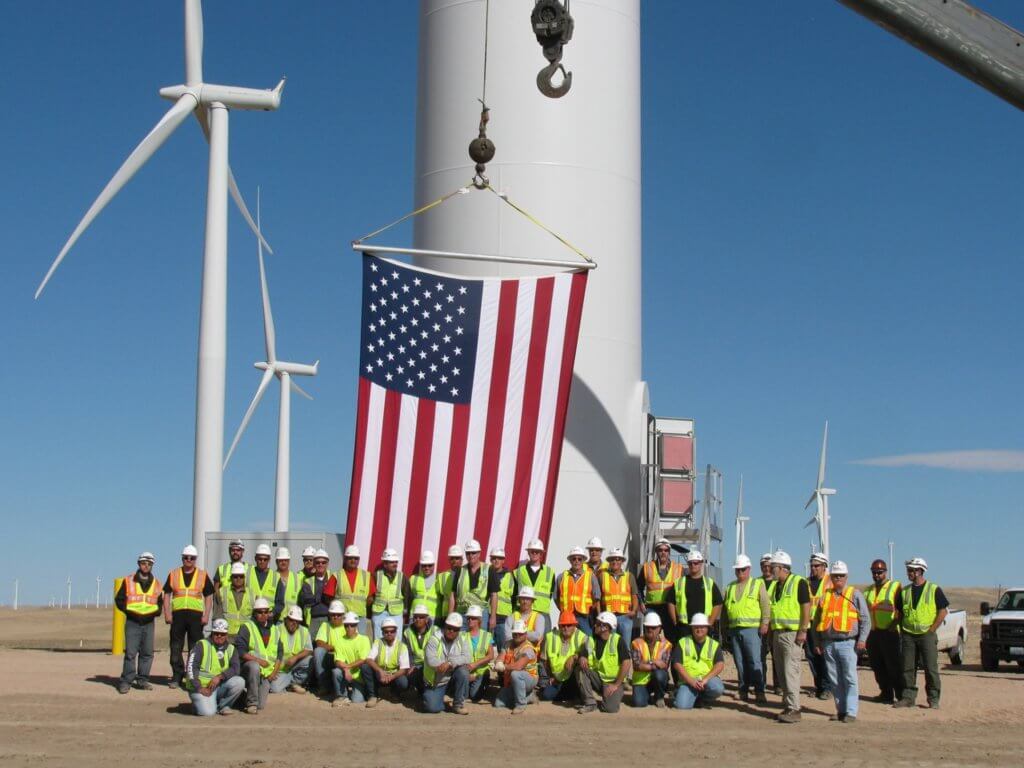News roundup: Veterans for clean tech, gains in American offshore, and investing in turbines
Today’s news highlights veterans who are now fighting for a cleaner, more secure armed forces, Dominion’s move to develop Maryland’s offshore wind resources, and how wind turbines are a solid investment for their entire lifespan.
Operation Free is encouraging the Department of Defense to invest in clean tech, not only for the economic and environmental advantages, but for our national security:
- [T]he organization's Brett Hunt, a 33-year-old former Army captain who served in the invasion of Iraq, says the military doesn't need to be convinced of the benefits of clean energy — it's already on board. Rather, he says, Operation Free spends most of its time convincing legislators that clean energy saves lives and protects the country.
- The first priority, Guthrie says, is reducing energy use through conservation. [Fort Carson] has seen a 16 to 17 percent reduction in energy use per square foot since 2003. And the base's goal is to average a 3 percent reduction per square foot every year. Guthrie says the base also aggressively pursues renewable power. About 3 percent of its energy comes from solar, 39 percent from wind, and a new woody biomass program with Colorado Springs Utilities is expected to produce up to 5 percent of its energy. As a bonus, the latter program will reuse waste generated by the base.
- The military is a place where I guess if you did a poll, I don't think you would find a bunch of people that are real worried about the polar bears or the ice caps. But what you will really find is a community, particularly among the leadership, that understands that extreme weather, rising ocean levels and other climate security risks are a real threat to our national security, because they lead to instability around the world… And I think it was pretty telling that everybody from the Department of Defense to the CIA and other national intelligence agencies — again not known for being tree huggers — identify climate change as a global security threat…
Dominion Resources continues to make moves in the offshore market, this time announcing a plan to bid on a wind-rich area off the coast of Maryland:
- In a Tuesday press release, Richmond, Virginia-based company Dominion Resources said it is moving forward with a plan to bid on a lease for 80,000 acres of ocean off the coast of Maryland — federal land that has been set aside for the development of wind farms. Though an auction date has not been set yet, it is expected to take place sometime this year. According to Dominion, the site could offer up to 1,450 megawatts of commercial power, or enough to power 300,000 homes.
- As Dominion competes with other companies for the lease, it is also attempting to move forward on another auction it won in September for offshore wind — a lease of nearly 113,000 acres off the Virginia coast, which it won with a $1.6 million bid. That site has the potential to generate 2,000 megawatts of electricity, or enough to power 700,000 homes. Even Virginia’s then-Governor Bob McDonnell, a Republican who routinely dismissed climate science and pushed for more fossil-fuel use, said the project was a good idea. “Virginia’s coast is ideal for wind development,” McDonnell said at the time. “This will result in millions of dollars in industrial activity and the creation of many new high-skilled jobs in our state.”
- In Nantucket Sound, a wind company has been given the go-ahead to install 130 wind turbines, which under average winds could provide Cape Cod, Martha’s Vineyard and Nantucket with 75 percent of their power needs. Rhode Island-based wind company Deepwater Wind is also planning a five-turbine installation off the coast of Rhode Island, a project the company says could power 17,000 homes.
Wind turbines are a solid long-term investment, and a new report released this week gets into the details:
- In a new study, researchers from Imperial College Business School carried out a comprehensive nationwide analysis of the UK fleet of wind turbines, using local wind speed data from NASA. They showed that the turbines will last their full life of about 25 years before they need to be upgraded.
- The team found that the UK's earliest turbines, built in the 1990s, are still producing three-quarters of their original output after 19 years of operation, nearly twice the amount previously claimed, and will operate effectively up to 25 years. This is comparable to the performance of gas turbines used in power stations.
- Dr Iain Staffell, co-author of the paper and a research fellow at Imperial College Business School, said: "Wind farms are an important source of renewable energy… However, in the past it has been difficult for investors to work out whether wind farms are an attractive investment. "Our study provides some certainty, helping investors to see that wind farms are an effective long-term investment and a viable way to help the UK tackle future energy challenges."
Be sure to check out this week’s other roundups:
- Wednesday: Steyer on climate change, Michigan's RPS a winner, and transmission for 1 million homes
- Tuesday: 100 percent renewables for U.S., Google invests in clean energy, support for action on climate
Sources:
J. Adrian Stanley, “Operation Free says the military's investment in clean energy will keep America safe.” Colorado Springs Independent. 19 February 2014.
Emily Atkin, “U.S. Offshore Wind Inches Closer To Reality As Dominion Places Bid On Ocean Lease.” ThinkProgress. 19 February 2014.
Imperial College London, “Claims that aging wind farms are a bad investment blown away by new research.” ScienceDaily. 19 February 2014.




